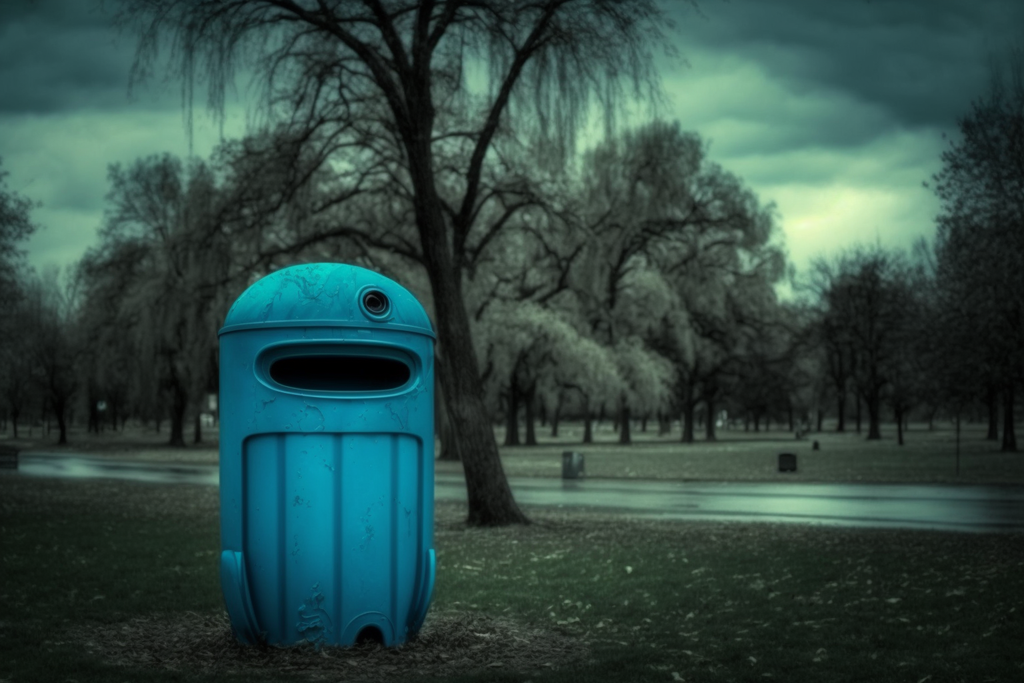Trash cans, also known as rubbish bins, waste bins, or garbage cans, are containers specifically designed for the temporary storage of waste materials.
These receptacles are commonly made of metal or plastic and have a lid that can be opened and closed to allow for the disposal of trash.
Trash cans come in a variety of sizes and shapes.
Depending on their intended use and the amount of waste they are expected to hold.
Where are Trash Cans Found?
Trash cans are found in a wide range of locations, including streets, parks, and other public spaces, as well as in homes and businesses.

They are used to collect and contain waste materials until they can be properly disposed of, either through recycling, composting, or disposal in a landfill. Trash cans are an important part of waste management systems, as they help to keep public spaces clean and prevent litter from accumulating.
Types of Trash Cans
There are many different types of trash cans available on the market, each designed to meet specific needs and requirements. Some common types of trash cans include:
- Outdoor trash cans: These trash cans are specifically designed for use in outdoor spaces, and are typically made of durable materials such as metal or plastic. They may have a locking mechanism to prevent animals from getting into the trash, and may also have wheels for easy movement.
- Indoor trash cans: These trash cans are designed for use inside buildings, and are smaller and more aesthetically pleasing than outdoor trash cans. They may be made of materials such as plastic or stainless steel, and have a variety of features such as lids that open and close automatically, or liners that can be easily removed and replaced.
- Recycling bins: These bins are used to collect recyclable materials such as paper, plastic, and metal. They may be separate from regular trash cans, or they may be labeled sections within a single trash can.
- Composting bins: These bins are used to collect organic materials such as food waste and yard waste, which can be composted into a nutrient-rich soil amendment.
Conclusion
In conclusion, trash cans are receptacles designed for the temporary storage of waste materials. They are found in a variety of locations, including public spaces and homes, and are an important part of waste management systems. There are many different types of trash cans available, each designed to meet specific needs and requirements.
FAQ
How often should trash cans be emptied?

The frequency of trash can emptying will depend on the size of the trash can and the amount of waste being generated.
Smaller trash cans in homes or businesses may need to be emptied daily. While larger trash cans in public spaces may only need to be emptied once or twice a week.
It is important to regularly empty trash cans to prevent them from becoming too full.
And overflowing and to keep public spaces clean and free of litter.
How do I dispose of the trash correctly?
To dispose of the trash correctly, it is important to follow local waste management regulations and guidelines.
This may involve separating recyclable materials from non-recyclable materials, and properly disposing of hazardous materials such as batteries or chemicals. It is also important to properly close and secure trash can lids to prevent litter and waste from escaping.
Can I recycle trash cans?
Some trash cans may be recyclable, depending on the material they are made of and the availability of recycling programs in your area. Metal trash cans, for example, can often be recycled at a scrap metal facility. Plastic trash cans may also be recycled, but this will depend on the type of plastic and the availability of recycling programs. It is best to check with your local waste management agency for information on how to properly recycle trash cans.
Are there any environmentally-friendly alternatives to trash cans?
Yes, there are a number of environmentally-friendly trash cans. Some options include composting bins for organic waste, recycling bins for recyclable materials, and reusable shopping bags to reduce the need for disposable bags. Another option is to use biodegradable or compostable products, which can be disposed of in a composting bin rather than a regular trash can.
ABOUT THE AUTHOR
Nurlana Alasgarli
Content Specialist
Nurlana Alasgarli is a professional copywriter with more than 6 years of creative writing experience. Having lived and experienced all over the world, there are many writing genres that Nurlana follows, including nature, arts and crafts and the outdoors. Nurlana brings life to content creation, captivating her readers.






